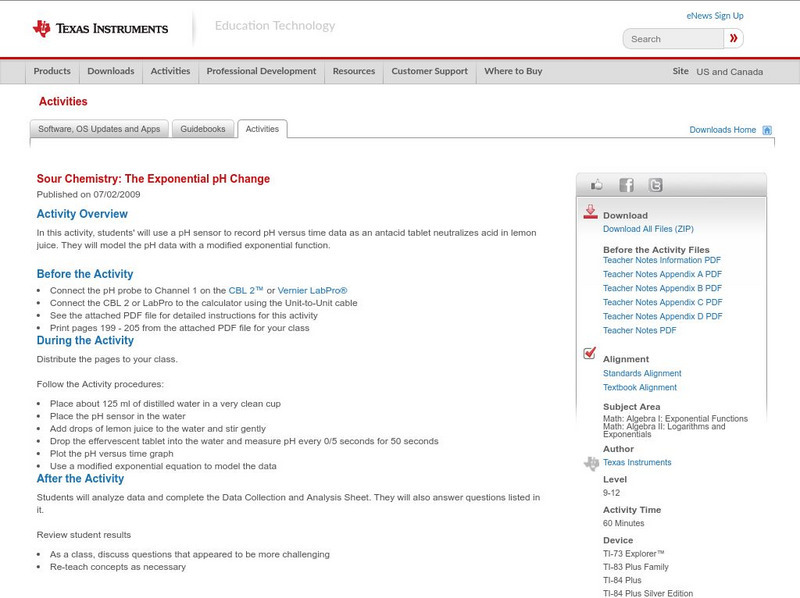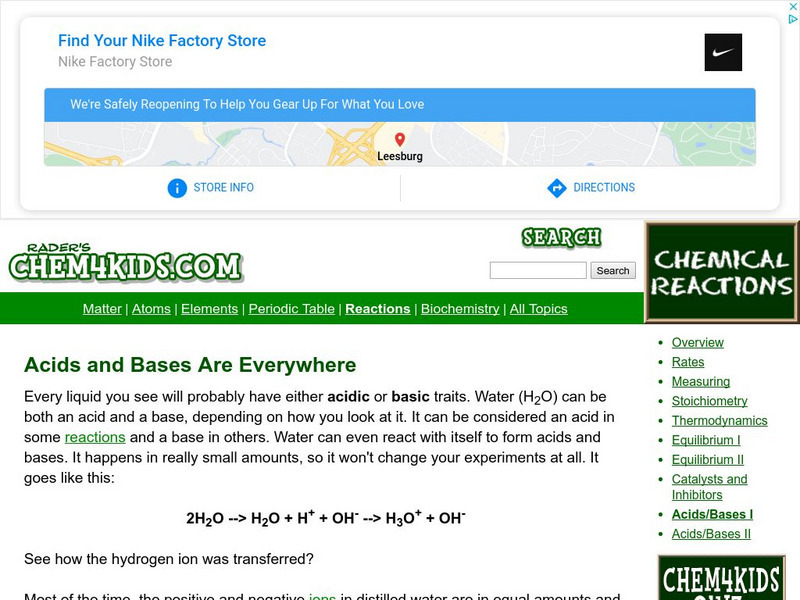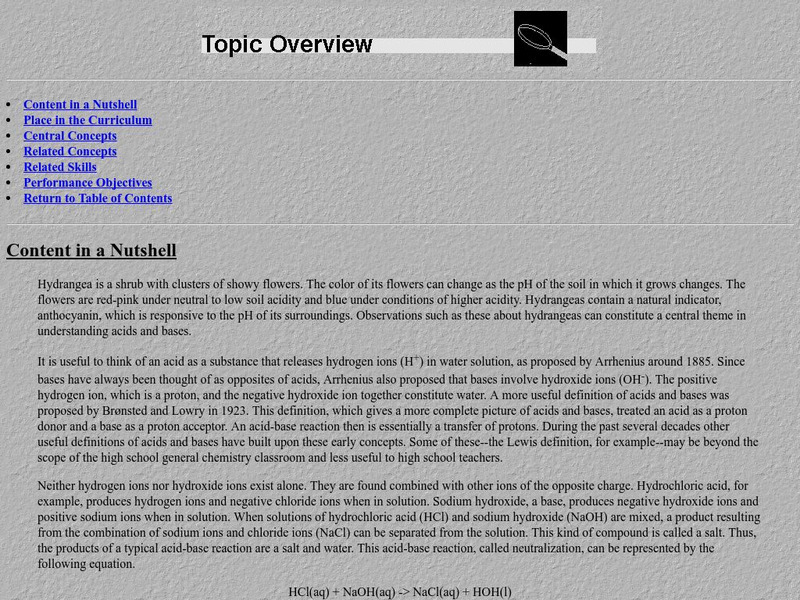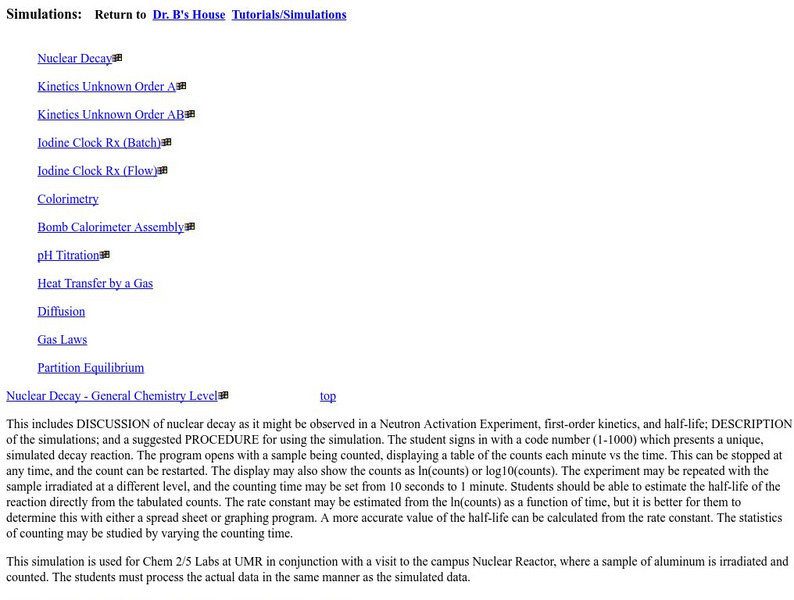University of Colorado
University of Colorado: Ph Et Interactive Simulations: Basics
Test the pH of everyday liquids such as coffee, spit, and soap to determine whether each is acidic, basic, or neutral. Investigate how adding more of a liquid or diluting with water affects pH.
Museum of Science
The P H Factor
This is a great source of chemistry experiments and information dealing with pH. Learning objectives are provided to explain the basis for each activity. Japanese and Chinese versions are also provided.
Science Education Resource Center at Carleton College
Serc: Investigating P H of Common Household Substances
Students investigate the pH level of household substances by testing a variety of common compounds. Substances are tested with pH strips and placed on the continuum of the pH scale range of 1 to 14. After testing a solution, the student...
Sophia Learning
Sophia: Converting Among P H, [H+], P Oh and [Oh ]
This video screencast shows how to convert among pH, [H+], pOH and [OH-], providing several examples. [7:30]
US Environmental Protection Agency
Epa: Measuring the P H of Natural Water
How acidic is your water? "In this experiment, you will measure the pH of natural water located near your home or school."
BBC
Bbc: Gcse Bitesize: Acids, Alkalis and Salts Aqa
This lesson focuses on acids and alkalis including acidic and alkaline solutions, neutral solutions, indicators and the pH scale, the colors for litmus paper, and a link to a test.
Other
Nearpod: Exploring Acids & Bases
In this lesson on exploring acids and bases, students will explore the pH scale and how is it related to acids and bases by learning key vocabulary terms and visuals related to the chemical process of neutralization.
Texas Instruments
Texas Instruments: Jason: When P H Changes, What Happens?
JASON Aquatic Field Study: Explore how the pH of an aquatic site determines if the water is acidic, basic, or neutral by performing an experiment at a local aquatic site to measure the pH level.
PBS
Pbs Teachers: Kitchen Chemistry
Conduct a series of virtual experiments using basic, acidic and neutral household liquids. Draw a conclusion from the results collected in an online lab journal.
American Chemical Society
Middle School Chemistry: Chapter 6: Chemical Change
Twelve interactive chemistry lessons about chemical changes complete with handouts and animations.
BBC
Bbc: Gcse Bitesize: Types of Chemical Reactions
Bases are substances that can react with acids and neutralize them. Alkalis are bases that are soluble in water. The pH scale measures how acidic or alkaline a substance is. Substances with a pH lower than 7 are acidic, those with a pH...
Center of Science and Industry
Cosi Columbus: Cabbage Patch Chemistry [Pdf]
Make your own indicator by using red cabbage leaves and common household items. Includes full list of materials, procedures, and scientific explanation of how to determine if a substance is acidic, basic, or neutral based on the colors...
Texas Instruments
Texas Instruments: Sour Chemistry: The Exponential P H Change
In this activity, students' will use a pH sensor to record pH versus time data as an antacid tablet neutralizes acid in lemon juice. They will model the pH data with a modified exponential function.
TOPS Learning Systems
Tops Learning Systems: Top Science: Cabbage Chemistry [Pdf]
Experiment using water from boiling red cabbage to determine if a material is an acid, a base, or neutral.
Chem4kids
Chem4 Kids: Acids & Bases
This Chem4Kids site provides a general overview of acids and bases, and their use in chemistry. Content focuses on "names to know" and how acids and bases work.
Oklahoma State University
Oklahoma State University: Acid Base Overview
Beginning with the example of the hydrangea, this page gives a good overview of acid-base chemistry.
Other
Chemistry Tutorials and Simulations
This site includes brief Chemistry tutorials on how to simulate experiments illustrating a number of different topics.
Texas Instruments
Texas Instruments: Titration Experiment
This activity is a fast and safe microscale experiment which allows students to quickly determine the molarity of three weak acids (vinegar, soda, and citric acid). Since the process involves a monoprotic, diprotic, and a triprotic acid,...
City University of New York
Brooklyn College: Bicarbonate Buffer
Explains the role of carbonic acid in the blood as part of a buffer system. Includes reactions.
PBS
Pbs Teachers: Soda Bottle Boat Experiment
Use the chemical reaction that occurs when mixing a base (baking soda) with an acid (vinegar) to turn a plastic soda bottle into a jet boat.


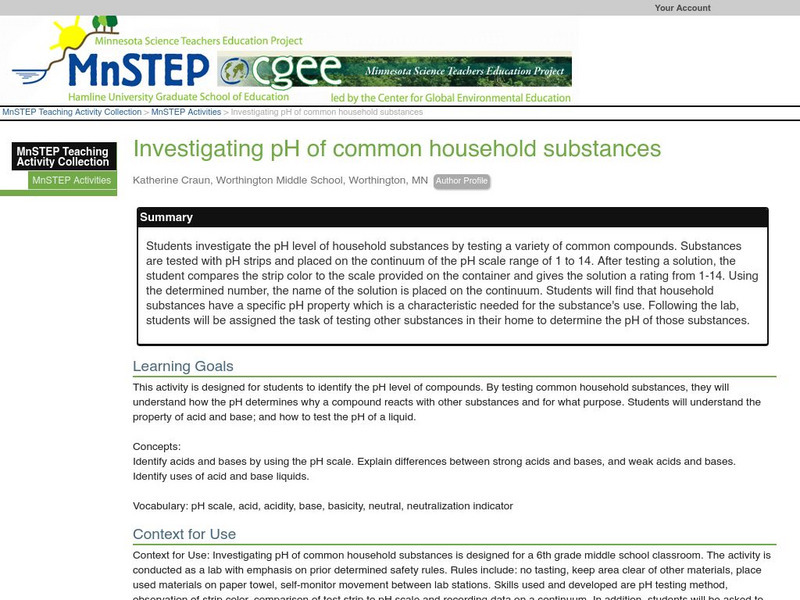
![Sophia: Converting Among P H, [H+], P Oh and [Oh ] Unit Plan Sophia: Converting Among P H, [H+], P Oh and [Oh ] Unit Plan](https://content.lessonplanet.com/knovation/original/218736-4f79e25d5f5c2bcb250d718e8ac1dcc2.jpg?1661182808)

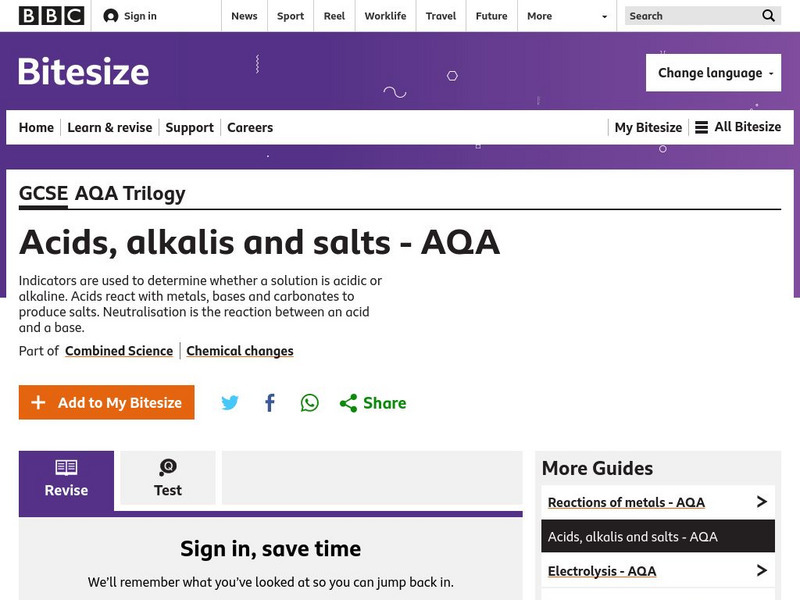


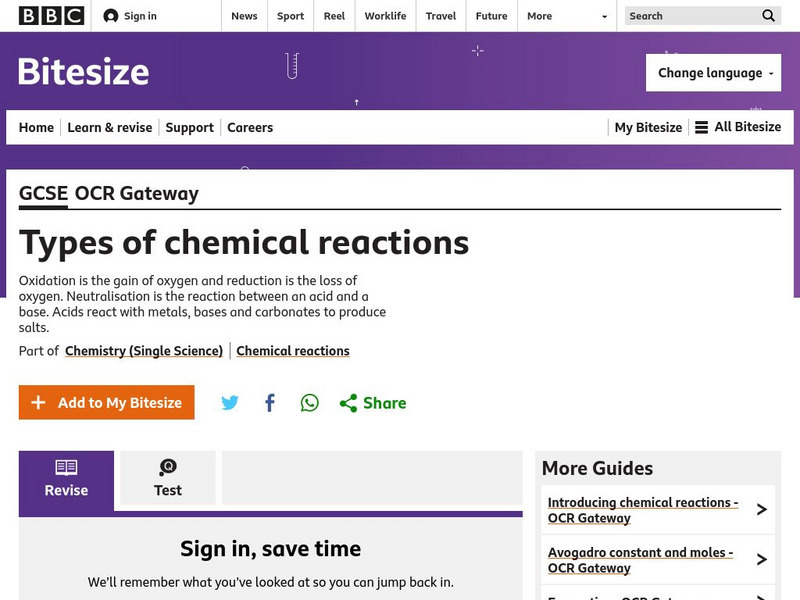
![Cosi Columbus: Cabbage Patch Chemistry [Pdf] Activity Cosi Columbus: Cabbage Patch Chemistry [Pdf] Activity](http://content.lessonplanet.com/resources/thumbnails/410122/large/bwluav9tywdpy2symdiwmduymc0ynde4oc0xzxmzchv6lmpwzw.jpg?1589985500)
